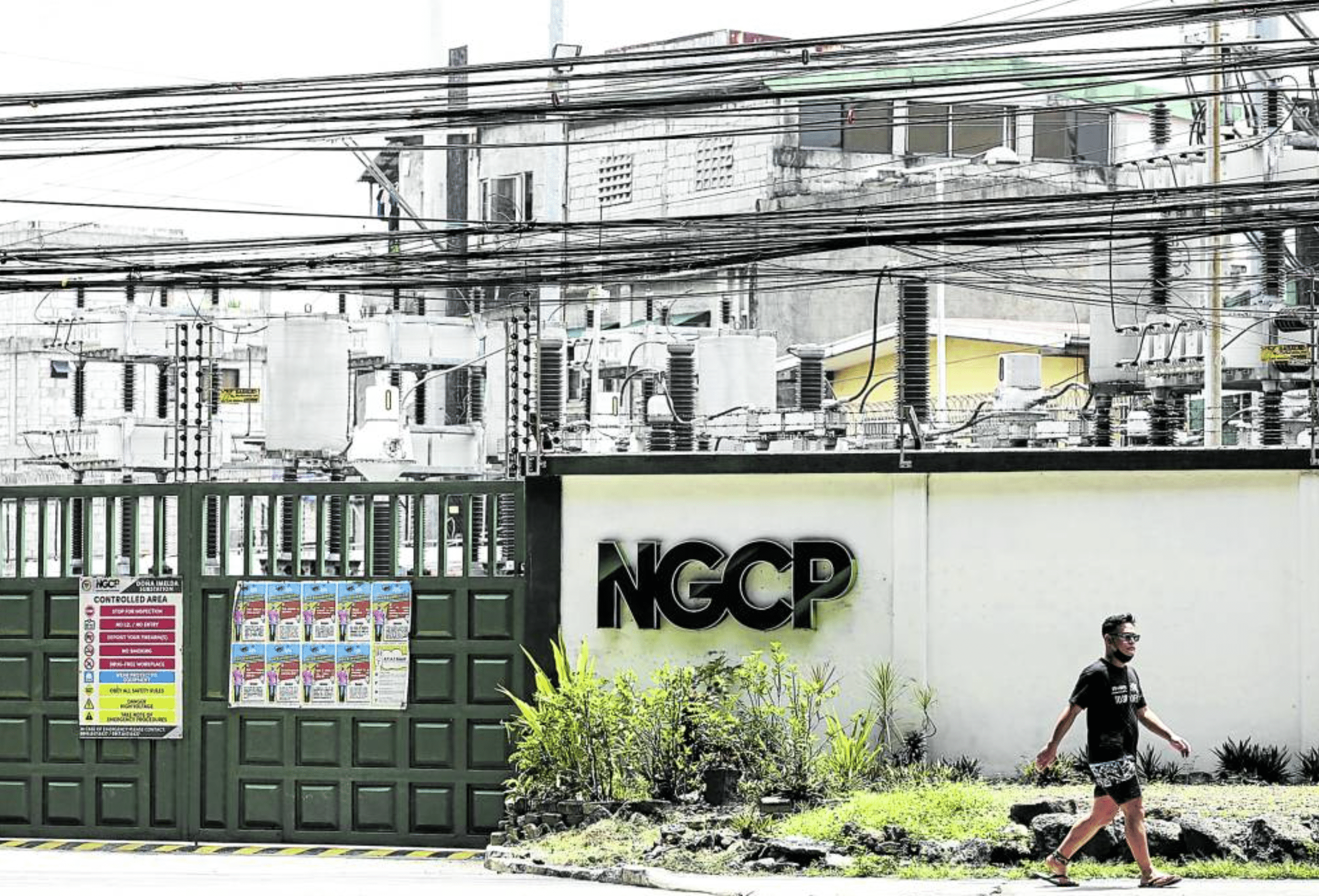
A distribution station of the National Grid Corp. of the Philippines in Quezon City. —INQUIRER FILE PHOTO
MANILA, Philippines — The chair of the ways and means panel of the House of Representatives on Saturday warned managers of the country’s first and only sovereign fund against investing in an energy firm that is already in dock to the government for hundreds of billions of pesos.
Albay Rep. Joey Salceda was referring to the National Grid Corp. of the Philippines (NGCP), the operator of the country’s power grid, which was found to owe power consumers P200 billion in expenses that were disallowed in 2023.
The Energy Regulatory Commission (ERC) disallowed P200 billion in advertising, entertainment and other expenses after they were found to have been illegally passed on to consumers. The ERC ordered a refund.
READ: House to conduct motu proprio inquiry into NGCP franchise
Salceda, a capital markets professional before entering politics, warned the management of the Maharlika Investment Corp. (MIC) that it would be made “co-liable to the public for the raw deal we got out of these disallowed expenses” if the sovereign fund invests in NGCP even before it completes the refund.
He also reminded the Maharlika management that investing in the NGCP without taking into account the risk of equity reduction due to the probable refund “would be a clear violation of Maharlika’s risk management principles.”
Salceda was chair of the technical working group in the drafting of Republic Act No. 11954 that created the sovereign wealth fund in July 2023.
“State exposure to the NGCP’s shareholder value before the ERC rules on the disallowances might also influence the government’s overall predisposition on the refund, since it would definitely impact the MIF’s (Maharlika Investment Fund) position,” he added.
READ: Recto bats for Maharlika investment in NGCP
IMF pushes best practice
Salceda said the House tax panel would be holding briefings on collections of the NGCP’s franchise tax and the implementation of ERC Resolution No. 10, s. 2023, which prevents the franchise tax from being passed on to consumers.
The lawmaker made the warning only days after the International Monetary Fund (IMF) urged the government to restore the capital of the two state-owned banks that funded the seed capital of the MIF.
In a country report released last month, the IMF said it is “important” to replenish the funds of Land Bank of the Philippines and Development Bank of the Philippines (DBP) and for the two lenders to exit regulatory relief “as soon as possible.”
“While the establishment of the MIC can help address the country’s investment needs; it should not come at the cost of a resilient financial system, sound regulatory framework, and level-playing field,” the Washington-based institution said.
Landbank and DBP contributed a combined P75 billion, representing 60 percent of the sovereign fund’s P125-billion capitalization.
P125-B investment
The remaining 40 percent of capital came from the national government, mainly from Bangko Sentral ng Pilipinas (BSP) dividends, state share in the earnings of the country’s gaming regulator, proceeds from privatization, royalties and other sources.
The BSP earlier said the mammoth infusions by Landbank and DBP had reduced the liquidity of the banks, which might make them noncompliant with capital requirements set by regulators.
But the two banks were given regulatory relief for a period two to three years, during which they are to be excused from meeting minimum capital requirements usually set by the BSP.
In its country report, the IMF said it was told by local authorities that the two state-run lenders would pursue “capital-management strategies that strengthen their capital position,” possibly including nonpayment of dividends to the national government.

